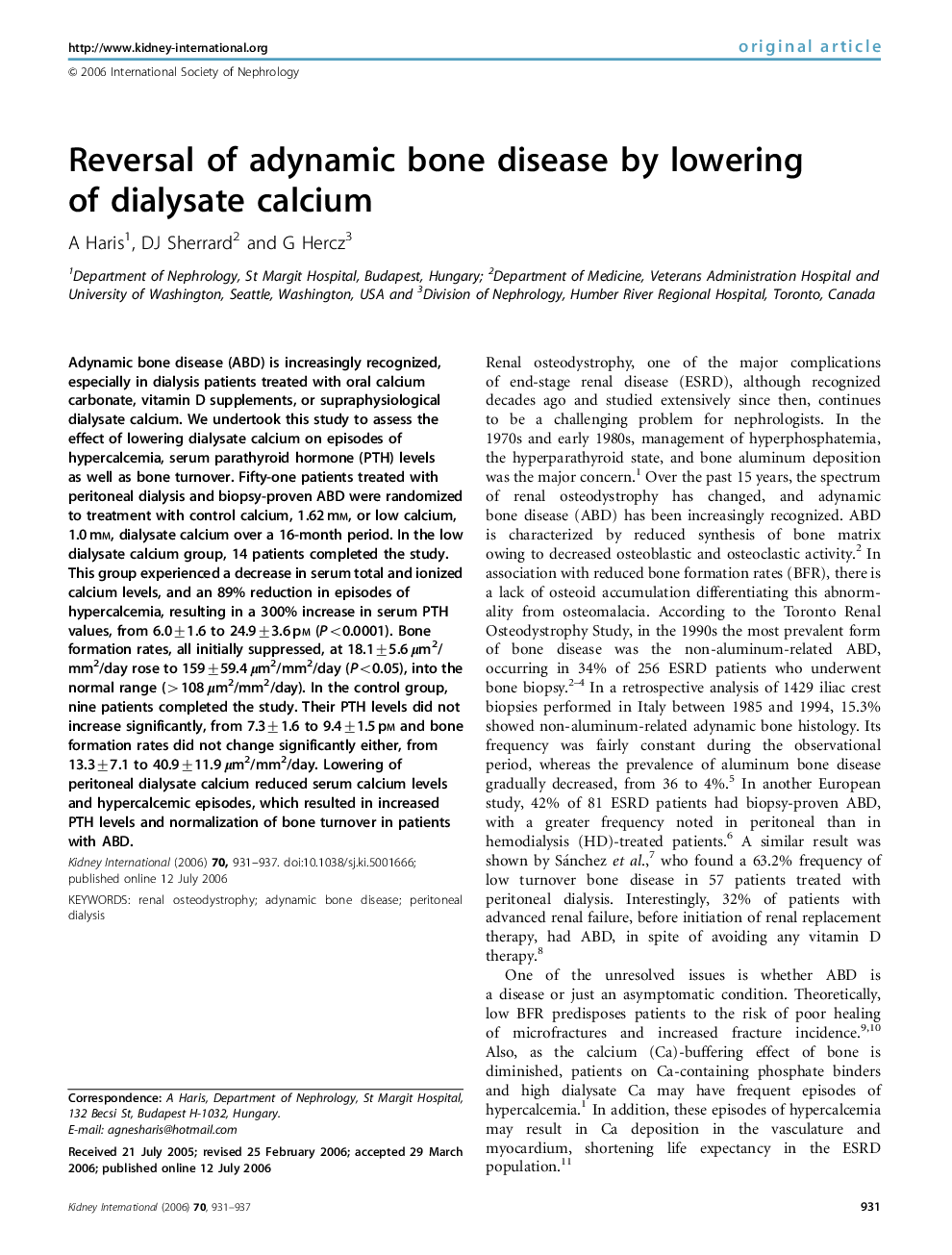| Article ID | Journal | Published Year | Pages | File Type |
|---|---|---|---|---|
| 3889623 | Kidney International | 2006 | 7 Pages |
Adynamic bone disease (ABD) is increasingly recognized, especially in dialysis patients treated with oral calcium carbonate, vitamin D supplements, or supraphysiological dialysate calcium. We undertook this study to assess the effect of lowering dialysate calcium on episodes of hypercalcemia, serum parathyroid hormone (PTH) levels as well as bone turnover. Fifty-one patients treated with peritoneal dialysis and biopsy-proven ABD were randomized to treatment with control calcium, 1.62 mM, or low calcium, 1.0 mM, dialysate calcium over a 16-month period. In the low dialysate calcium group, 14 patients completed the study. This group experienced a decrease in serum total and ionized calcium levels, and an 89% reduction in episodes of hypercalcemia, resulting in a 300% increase in serum PTH values, from 6.0±1.6 to 24.9±3.6 pM (P<0.0001). Bone formation rates, all initially suppressed, at 18.1±5.6 μm2/mm2/day rose to 159±59.4 μm2/mm2/day (P<0.05), into the normal range (>108 μm2/mm2/day). In the control group, nine patients completed the study. Their PTH levels did not increase significantly, from 7.3±1.6 to 9.4±1.5 pM and bone formation rates did not change significantly either, from 13.3±7.1 to 40.9±11.9 μm2/mm2/day. Lowering of peritoneal dialysate calcium reduced serum calcium levels and hypercalcemic episodes, which resulted in increased PTH levels and normalization of bone turnover in patients with ABD.
